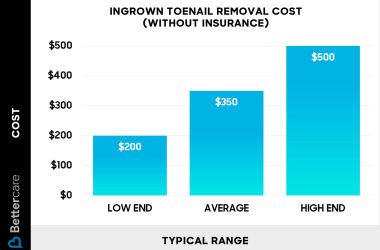Recalls can take varying amounts of time to fix, depending on the complexity of the issue and the availability of parts. Generally, how long recalls take to fix can range from a few days to several months. The process involves identifying the problem, manufacturing new parts if needed, and scheduling appointments for repairs. Stay informed and proactive if your vehicle is subject to a recall to ensure a timely resolution. Understanding the timeline for recalls can help you navigate the process efficiently and keep your vehicle safe on the road.
How Long Do Recalls Take to Fix
Recalls are a common occurrence in the automotive industry to address safety concerns or faulty components in vehicles. When a recall is issued, many car owners wonder how long it will take to get their vehicle fixed. In this article, we will dive deep into the process of recalls and explore the timeframe for fixing these issues.
The Recall Process
Before we delve into how long recalls take to fix, it’s essential to understand the recall process. Recalls are initiated by either the manufacturer or the National Highway Traffic Safety Administration (NHTSA) after identifying a safety-related defect in a vehicle. Once a recall is announced, the manufacturer is required to notify vehicle owners about the issue and provide information on how to get it fixed.
Identification of the Defect
The first step in the recall process is identifying the defect. This can happen through reports from consumers, internal testing by the manufacturer, or investigations by regulatory agencies like the NHTSA. Once the defect is confirmed, the manufacturer must take action to rectify the issue.
Notification and Reporting
After identifying the defect, the manufacturer is obligated to notify vehicle owners about the recall. This is typically done through mailed letters, emails, or phone calls. Additionally, manufacturers are required to report the recall to the NHTSA, which maintains a database of all recalls for public access.
Fixing the Issue
Once notified of the recall, vehicle owners can schedule an appointment with an authorized dealership to get the defect fixed. The time it takes to address the issue can vary depending on the nature of the defect, the availability of replacement parts, and the workload at the service center.
Factors Affecting the Timeframe for Recall Fixes
Several factors can influence how long recalls take to fix. Let’s explore some of the key determinants that can impact the duration of the recall process.
Severity of the Defect
The severity of the defect plays a significant role in determining how long it will take to fix the issue. Minor issues that do not pose an immediate safety risk can be addressed relatively quickly, while major safety concerns may require extensive repairs, leading to a longer wait time for owners.
Availability of Replacement Parts
One of the critical factors that can affect the timeframe for recall fixes is the availability of replacement parts. If the defect involves a component that is in high demand or has limited stock, owners may experience delays in getting their vehicles repaired.
Service Center Capacity
The capacity of authorized service centers to handle recall repairs can also impact how long it takes to fix the issue. High-volume recalls or a surge in repair requests can strain service centers, leading to longer wait times for owners.
Owner Response
The prompt response of vehicle owners to recall notifications can expedite the repair process. Scheduling an appointment as soon as possible and being proactive in getting the defect fixed can help reduce the overall time it takes to address the recall.
Typical Timeframe for Recall Fixes
While the duration of recall fixes can vary widely based on the factors mentioned above, there are some general timelines that owners can expect when dealing with a recall.
Immediate Repairs
In cases where the defect poses an imminent safety hazard, manufacturers may advise owners to stop driving their vehicles immediately and have them towed to the nearest dealership for repairs. These urgent recalls are typically resolved within a few days to ensure the safety of the owners and other road users.
Standard Repairs
For non-urgent recalls, the repair process usually takes a few hours to a few days, depending on the complexity of the issue and the availability of parts. Owners can schedule an appointment at their convenience and have the problem fixed during a single visit to the dealership.
Extended Repairs
In rare cases where the defect is extensive or requires significant modifications, the repair process can take weeks or even months to complete. Manufacturers may provide alternative transportation options for owners during this period to minimize inconvenience.
In conclusion, the time it takes to fix recalls can vary widely based on several factors such as the severity of the defect, availability of replacement parts, service center capacity, and owner response. While some recalls can be resolved quickly within a few days, others may require more time and patience from vehicle owners. It is essential for owners to stay informed about recalls affecting their vehicles and take prompt action to ensure the safety and reliability of their cars.
Everything You NEED to Know about Vehicle Recalls and TSBs
Frequently Asked Questions
How soon can I expect a recall to be fixed?
Recalls vary in terms of complexity and the availability of replacement parts. Generally, manufacturers aim to address recalls promptly to ensure consumer safety. The duration of a recall can range from a few days to several months, depending on the extent of the issue and the logistics involved.
Are there any factors that can affect the speed of a recall fix?
Several factors can impact the timeframe for fixing a recall. These include the number of affected vehicles, the severity of the safety concern, the availability of replacement parts, coordination with repair facilities, and adherence to regulatory protocols. Manufacturers work diligently to expedite the recall process while ensuring thoroughness.
What should I do while waiting for a recall to be fixed?
While waiting for a recall to be fixed, it’s crucial to follow any interim safety guidelines provided by the manufacturer. This may involve avoiding certain driving conditions or practices to minimize risks associated with the recall issue. Staying informed and staying in touch with the manufacturer or authorized dealers can also help you receive timely updates on the status of the recall fix.
Final Thoughts
Recalls can vary in duration. Factors such as the complexity of the issue, available resources, and coordination among stakeholders influence the time needed to address recalls. Understanding the specific circumstances of each recall is crucial in determining the timeframe for the fix. By prioritizing swift action and effective communication, manufacturers can minimize the impact of recalls on consumers. Overall, the speed of resolving recalls depends on the proactive approach taken by companies in addressing safety concerns. So, how long do recalls take to fix? It ultimately comes down to efficient planning and execution.











